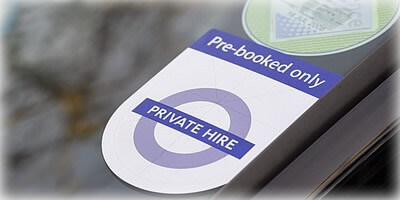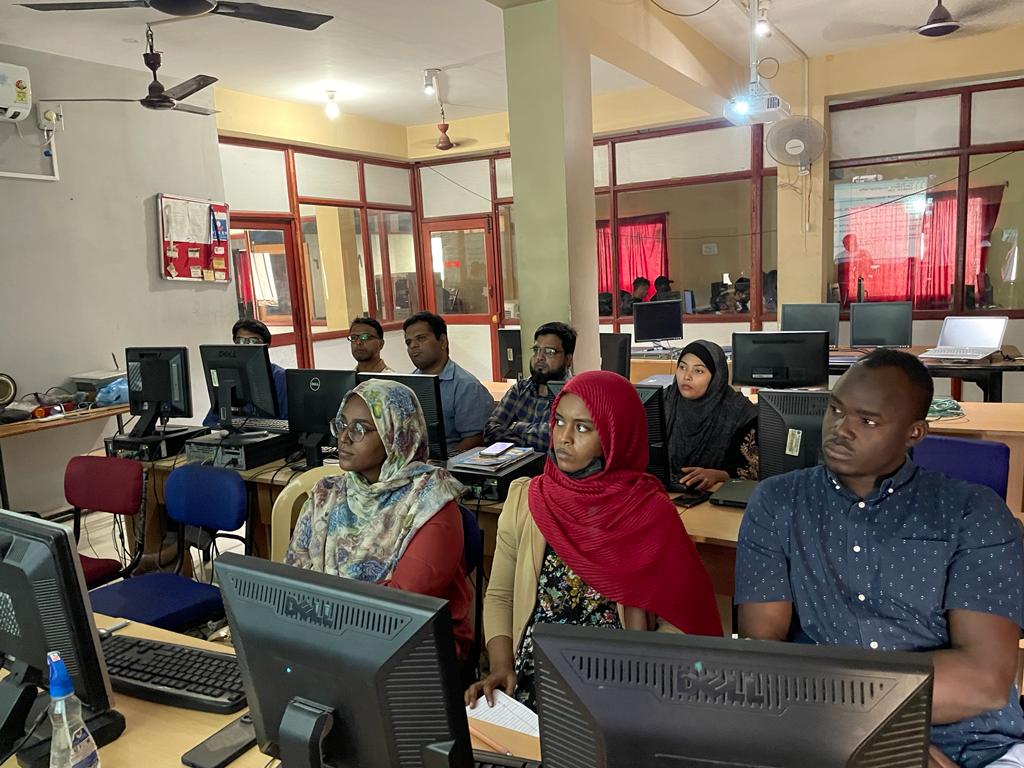Recent Updates
All Countries
All Countries
Afghanistan
Albania
Algeria
American Samoa
Andorra
Angola
Anguilla
Antarctica
Antigua and Barbuda
Argentina
Armenia
Aruba
Australia
Austria
Azerbaijan
Bahamas
Bahrain
Bangladesh
Barbados
Belarus
Belgium
Belize
Benin
Bermuda
Bhutan
Bolivia
Bosnia and Herzegovina
Botswana
Bouvet Island
Brazil
British Indian Ocean Territory
Brunei Darussalam
Bulgaria
Burkina Faso
Burundi
Cambodia
Cameroon
Canada
Cape Verde
Cayman Islands
Central African Republic
Chad
Chile
China
Christmas Island
Cocos (Keeling) Islands
Colombia
Comoros
Congo
Cook Islands
Costa Rica
Croatia (Hrvatska)
Cuba
Cyprus
Czech Republic
Denmark
Djibouti
Dominica
Dominican Republic
East Timor
Ecuador
Egypt
El Salvador
Equatorial Guinea
Eritrea
Estonia
Ethiopia
Falkland Islands (Malvinas)
Faroe Islands
Fiji
Finland
France
France, Metropolitan
French Guiana
French Polynesia
French Southern Territories
Gabon
Gambia
Georgia
Germany
Ghana
Gibraltar
Guernsey
Greece
Greenland
Grenada
Guadeloupe
Guam
Guatemala
Guinea
Guinea-Bissau
Guyana
Haiti
Heard and Mc Donald Islands
Honduras
Hong Kong
Hungary
Iceland
India
Isle of Man
Indonesia
Iran (Islamic Republic of)
Iraq
Ireland
Israel
Italy
Ivory Coast
Jersey
Jamaica
Japan
Jordan
Kazakhstan
Kenya
Kiribati
Korea, Democratic People's Republic of
Korea, Republic of
Kosovo
Kuwait
Kyrgyzstan
Lao People's Democratic Republic
Latvia
Lebanon
Lesotho
Liberia
Libyan Arab Jamahiriya
Liechtenstein
Lithuania
Luxembourg
Macau
Macedonia
Madagascar
Malawi
Malaysia
Maldives
Mali
Malta
Marshall Islands
Martinique
Mauritania
Mauritius
Mayotte
Mexico
Micronesia, Federated States of
Moldova, Republic of
Monaco
Mongolia
Montenegro
Montserrat
Morocco
Mozambique
Myanmar
Namibia
Nauru
Nepal
Netherlands
Netherlands Antilles
New Caledonia
New Zealand
Nicaragua
Niger
Nigeria
Niue
Norfolk Island
Northern Mariana Islands
Norway
Oman
Pakistan
Palau
Palestine
Panama
Papua New Guinea
Paraguay
Peru
Philippines
Pitcairn
Poland
Portugal
Puerto Rico
Qatar
Reunion
Romania
Russian Federation
Rwanda
Saint Kitts and Nevis
Saint Lucia
Saint Vincent and the Grenadines
Samoa
San Marino
Sao Tome and Principe
Saudi Arabia
Senegal
Serbia
Seychelles
Sierra Leone
Singapore
Slovakia
Slovenia
Solomon Islands
Somalia
South Africa
South Georgia South Sandwich Islands
Spain
Sri Lanka
St. Helena
St. Pierre and Miquelon
Sudan
Suriname
Svalbard and Jan Mayen Islands
Swaziland
Sweden
Switzerland
Syrian Arab Republic
Taiwan
Tajikistan
Tanzania, United Republic of
Thailand
Togo
Tokelau
Tonga
Trinidad and Tobago
Tunisia
Turkey
Turkmenistan
Turks and Caicos Islands
Tuvalu
Uganda
Ukraine
United Arab Emirates
United Kingdom
United States
United States minor outlying islands
Uruguay
Uzbekistan
Vanuatu
Vatican City State
Venezuela
Vietnam
Virgin Islands (British)
Virgin Islands (U.S.)
Wallis and Futuna Islands
Western Sahara
Yemen
Zaire
Zambia
Zimbabwe
-
Tours Or Transfers? Meet the best UK immigration SolicitorsUnlocking Your Immigration Potential with Immigration Solicitors4me Are you considering immigrating to the UK or dealing with visa matters, but feeling overwhelmed by the complexities of the process? Fear not, because Immigration Solicitors4me is here to guide you every step of the way. With their expert knowledge and personalized approach, navigating the intricacies of immigration and visa...0 Comments 0 Shares 41 Views 0 ReviewsPlease log in to like, share and comment!
-
0 Comments 0 Shares 56 Views 0 Reviews
-
https://www.heathrowgatwickcars.com/
Heathrow Gatwick Transfers™ 247 Cheapest Airport Transport Hire @Fixed Fare! Best Private Car Service Heathrow (LHR) & Gatwick (LGW) Transithttps://www.heathrowgatwickcars.com/ Heathrow Gatwick Transfers™ 247 Cheapest Airport Transport Hire @Fixed Fare! Best Private Car Service Heathrow (LHR) & Gatwick (LGW) Transit WWW.HEATHROWGATWICKCARS.COMLondon Heathrow Gatwick Private Transfer AirportHeathrow Gatwick Transfers™ 247 Cheapest Airport Transport Hire @Fixed Fare! Best Private Car Service Heathrow (LHR) & Gatwick (LGW) Transit0 Comments 0 Shares 92 Views 0 Reviews
WWW.HEATHROWGATWICKCARS.COMLondon Heathrow Gatwick Private Transfer AirportHeathrow Gatwick Transfers™ 247 Cheapest Airport Transport Hire @Fixed Fare! Best Private Car Service Heathrow (LHR) & Gatwick (LGW) Transit0 Comments 0 Shares 92 Views 0 Reviews -
0 Comments 0 Shares 167 Views 0 Reviews
-
Fort Worth’s Print Pros: Pamphlets, Signs & Custom Solutions That Stand OutAt AlphaGraphics Fort Worth – Western Center, we know that great print materials do more than deliver information—they spark interest, build trust, and drive action. Whether you're promoting a new service, hosting an event, or branding your storefront, our team is here to help you make a lasting impression. From professional pamphlets printing Fort Worth to high-impact sign...0 Comments 0 Shares 177 Views 0 Reviews
-
Master Networking Skills with CCNA (R&S) + CCNA Security Training in Hyderabad
Exclusive Combo Program: Enroll in CCNA Routing & Switching + CCNA Security Training at Firewall Zone Institute of IT and take the first step toward a rewarding career in networking and security.
Why Choose CCNA at Firewall Zone Institute of IT?
The Cisco CCNA Routing & Switching Training Program is the foundation for anyone aspiring to build a strong career in networking. With the rapid digital transformation of businesses, companies are adopting programmable network architectures, creating a massive demand for skilled and certified network engineers.
At Firewall Zone Institute of IT, we ensure you gain the right knowledge, hands-on experience, and industry-ready expertise.
New Batch Starts: 13th October 2025
Location: Beside KFC & McDonald’s Building, Opposite Pillar No: 3, Mehdipatnam, Hyderabad, TS
Call: 040-23530263
WhatsApp: +91 888 619 2132
Visit: www.firewall-zone.com/ccna-routing-and-switching-training-in-hyderabad-teangana/
Training Highlights
Real-Time Devices for Practical Learning
Fully Equipped Labs with Advanced Tools
100+ Routers, Switches & Firewalls for Practice
Expert Faculty with Extensive Industry Experience
Build the right skills, earn global certifications, and become job-ready with our CCNA R&S + CCNA Security Training Program.
#ccna #cisco #ccnarouting #ccnaroutingswitching #ccnahyderabad #ccnatraining #ccnasecurity #networksecurity #routingandswitching #ciscotraininghyderabad #ccnaonlinetraining #ccnacertification
Master Networking Skills with CCNA (R&S) + CCNA Security Training in Hyderabad 🚀 Exclusive Combo Program: Enroll in CCNA Routing & Switching + CCNA Security Training at Firewall Zone Institute of IT and take the first step toward a rewarding career in networking and security. Why Choose CCNA at Firewall Zone Institute of IT? The Cisco CCNA Routing & Switching Training Program is the foundation for anyone aspiring to build a strong career in networking. With the rapid digital transformation of businesses, companies are adopting programmable network architectures, creating a massive demand for skilled and certified network engineers. At Firewall Zone Institute of IT, we ensure you gain the right knowledge, hands-on experience, and industry-ready expertise. 📅 New Batch Starts: 13th October 2025 📍 Location: Beside KFC & McDonald’s Building, Opposite Pillar No: 3, Mehdipatnam, Hyderabad, TS 📞 Call: 040-23530263 📱 WhatsApp: +91 888 619 2132 🌐 Visit: www.firewall-zone.com/ccna-routing-and-switching-training-in-hyderabad-teangana/ Training Highlights ✅ Real-Time Devices for Practical Learning ✅ Fully Equipped Labs with Advanced Tools ✅ 100+ Routers, Switches & Firewalls for Practice ✅ Expert Faculty with Extensive Industry Experience Build the right skills, earn global certifications, and become job-ready with our CCNA R&S + CCNA Security Training Program. #ccna #cisco #ccnarouting #ccnaroutingswitching #ccnahyderabad #ccnatraining #ccnasecurity #networksecurity #routingandswitching #ciscotraininghyderabad #ccnaonlinetraining #ccnacertification CCNA Training | CCNA Routing and Switching Training in Hyderabad | CCNA Routing Switching Course Institute in Hyderabad | CCNA Course In Hyderabad Telangana | Firewall ZoneLooking for CCNA Routing and Switching Training in Hyderabad Firewall Zone offer CCNA Course In Hyderabad with Real Time Devices for Students who are seeking Course of CCNA Certification Exam in CCNA Routing & Switching in Hyderabad near Ameerpet. Our Faculties are highly experienced in the CCNA Training in Hyderabad Call Now ☎ 8886192132.0 Comments 0 Shares 175 Views 0 Reviews
CCNA Training | CCNA Routing and Switching Training in Hyderabad | CCNA Routing Switching Course Institute in Hyderabad | CCNA Course In Hyderabad Telangana | Firewall ZoneLooking for CCNA Routing and Switching Training in Hyderabad Firewall Zone offer CCNA Course In Hyderabad with Real Time Devices for Students who are seeking Course of CCNA Certification Exam in CCNA Routing & Switching in Hyderabad near Ameerpet. Our Faculties are highly experienced in the CCNA Training in Hyderabad Call Now ☎ 8886192132.0 Comments 0 Shares 175 Views 0 Reviews -
https://betyek.bet/
سایت بت یک معتبرترین و امن ترین پلتفرم پیش بینی مسابقات ورزشی و کازینوی آنلاین در حوزه شرط بندی ایران می باشد. BetYek از که از کلاس جهانی برخوردار بوده و با ارائه بهترین امکانات و آپشن ها توانسته مقام نخست را در میان تمام سایت های شرط بندی ایران به دست آورد.https://betyek.bet/ سایت بت یک معتبرترین و امن ترین پلتفرم پیش بینی مسابقات ورزشی و کازینوی آنلاین در حوزه شرط بندی ایران می باشد. BetYek از که از کلاس جهانی برخوردار بوده و با ارائه بهترین امکانات و آپشن ها توانسته مقام نخست را در میان تمام سایت های شرط بندی ایران به دست آورد.0 Comments 0 Shares 180 Views 0 Reviews -
Drama Call | Drama Call Clothing | Get Upto 50% OFFDrama Call Clothing: Redefining Streetwear with Emotion and Edge Introduction to Drama Call Clothing In today’s fast-evolving fashion world, Drama Call Clothing has made its mark as a powerful voice in the streetwear scene. This brand stands out for its raw storytelling, emotional depth, and urban creativity. Instead of following trends, Drama Call builds its identity on real...0 Comments 0 Shares 178 Views 0 Reviews
-
When to See an Orthopaedic Surgeon for Bone or Joint PainBone and joint pain are common problems that affect people of all ages. Whether it’s a sports injury, age-related wear and tear, or sudden pain after an accident, these conditions can interfere with your daily life. Knowing when to consult an orthopaedic specialist can make a big difference in your recovery. If you are experiencing persistent pain, swelling, or limited movement, it may be...0 Comments 0 Shares 184 Views 0 Reviews
-
0 Comments 0 Shares 192 Views 0 Reviews
-
Website Design Services Near Me: Building a Strong Online PresenceIn today’s digital age, your website is often the first impression potential customers have of your business. Whether you run a local store, a startup, or an established brand, having a professional and engaging website is no longer optional—it’s essential. That’s why searching for “website design services near me” can make a real difference in how your brand...0 Comments 0 Shares 199 Views 0 Reviews
-
Mengenal Dunia Togel dan Perannya di Era DigitalPermainan tebakan angka atau togel online telah berkembang pesat seiring kemajuan teknologi dan internet. Kini pemain tidak lagi harus datang ke bandar fisik, melainkan bisa menikmati berbagai pasaran togel dari perangkat mereka. Dalam artikel ini kita akan membahas aspek-aspek penting seperti daftar Citislots, link alternatif Citislots, serta bagaimana posisi situs...0 Comments 0 Shares 207 Views 0 Reviews
More Stories








